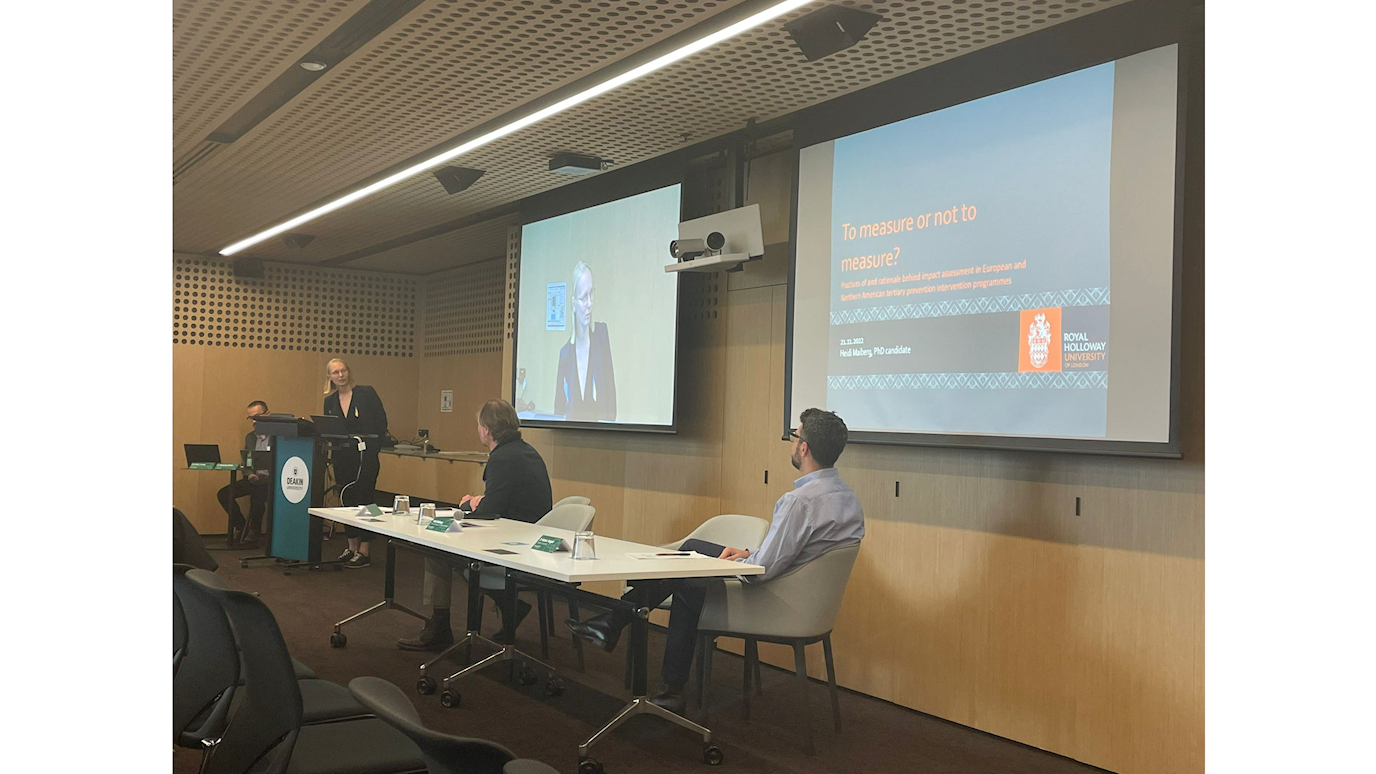Heidi Maiberg’s PhD dissertation focuses on how impact of programme interventions is assessed in voluntary-based deradicalisation and disengagement programmes in Europe and Northern America.

Heidi Maiberg (Heidi Maiberg – Research output — Royal Holloway Research Portal ) presented on the topic: ‘To measure or not to measure? Practices of and rationale behind impact assessment in European and Northern American tertiary prevention intervention programme’.
Her presentation took place on day 2 of AVERT Research Symposium (AVERT Symposium 2022 — AVERT Research Network) . This two-day conference was held in Melbourne, Australia and convened by the addressing violent extremism and radicalisation to terrorism (AVERT) research network is a multidisciplinary multi-institutional research network based in Melbourne, Australia and Australia’s Department of Home Affairs. It focused on the aims, needs, forms and outcomes of extremism prevention interventions.
In the presentation on 22 November 2022, Heidi Maiberg discussed how is impact assessment addressed in tertiary prevention interventions and introduced four key findings. They are: first, ‘impact assessment’ is vaguely defined among intervention providers.
Second, programmes face several difficulties regarding measuring the impact of their work, e.g. finding suitable indicators, identifying ‘success’, and lack of suitable measuring tools.
Third, reasons why impact is not measured is that facilitators don’t want to be similar to prison, police, and probation officers, they work based on their gut feeling and are unable to provide any guarantee about their work.
Last, keeping eye on fulfilling set agreements and staying in touch with the participants are some of the ways how intervention providers check-in on their clients and measure the impact of their development.
The Panel was moderated by Dr Malcolm Haddon, Associate Director, Community Resilience, at Multicultural New South Wales, Australia.
























